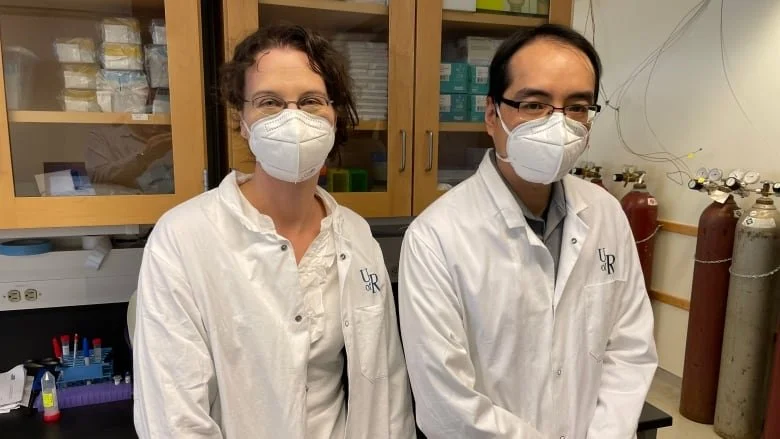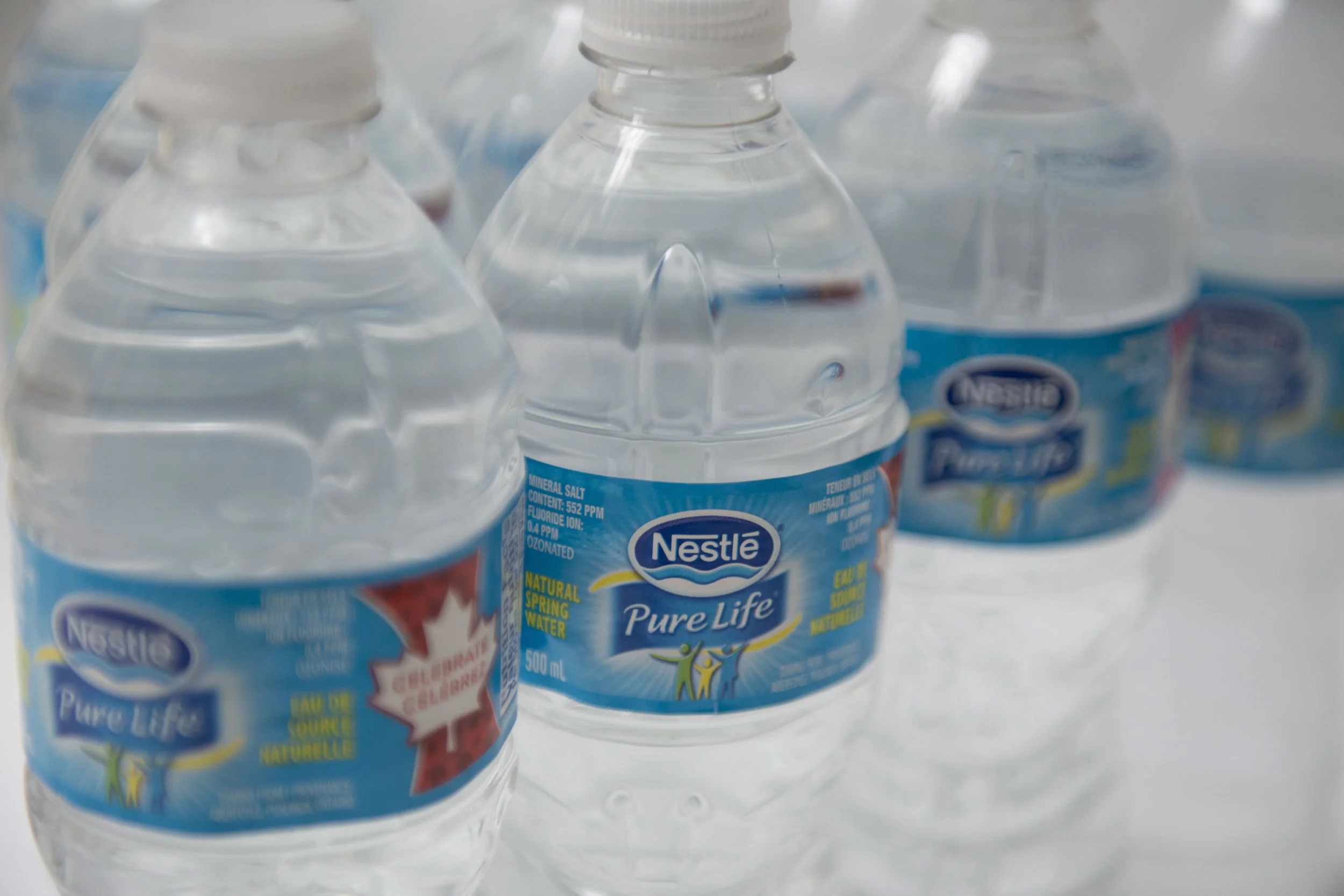Every time you flush, the waste disappears in a swirly whirl, never to be seen again. It’s magic! Actually, it’s science and engineering. And the flush is just the start. Let’s follow that flush! First stop: The sewer pipe. This is where your business mingles with all the other household wastewater. You know, the scummy stuff that gets rinsed off your dishes and clothes and body. In older cities like Chicago, stormwater and runoff joins the party, too. That’s because Chicago has what’s called a combined sewer system.
How the science behind salmon farms and sea lice became so contentious
A federal decision to shut down 15 open-net Atlantic salmon farms around B.C.'s Discovery Islands is being lauded as a win for protecting wild salmon, and a significant blow to the fish-farm industry — all while reigniting a decades-old debate between industry and scientists. The decision from Ottawa came just weeks after a Fisheries and Oceans Canada (DFO) report found no "statistically significant association" between sea lice infestations among wild juvenile chum and pink salmon and the fish farms they migrate past along the B.C. coast.
Prince Philip School kids get chance to drive Canadian-made lunar rover
“I told the kids that we get to drive the rover that is the model for the real one, which is so cool,” said Christie. “They’re essentially doing a live simulation of the project they put together. They use the science instruments and tools (on the rover) to determine if there’s water evidence.” At one point, Leah David-Purcell with Avalon Space announced to the kids that the rover had detected evidence of water, but then one of the students stood up to say her analysis showed the rover had detected iron, not water.
Design challenge brings together art and science to help change how Vancouverites think about sea-level rise
During an event earlier this month, writers from four coastal cities — Vancouver, New York, Mumbai and Tokyo — typed out their thoughts about the prospect of rising sea levels. Their words were projected on a large screen in Vancouver's Olympic Village, and a youth choir sang them out to the public. In addition, a photography project on display showed how residents imagine they may be impacted by rising sea levels in and around False Creek. The choir and photography were part of an event marking the end of the first phase of the Sea2City Design Challenge, a City of Vancouver project that aims to look at how the city can adapt to rising sea levels — particularly in the False Creek floodplain — and address the social, economic and ecological impacts coastal flooding will have in the future.
This 23-year-old McMaster student wants to see more Indigenous perspectives included in science
Sage Hartmann, a fifth-year McMaster University science student from Red River Métis Nation in Manitoba, is out to centre Indigenous perspectives within the school's Faculty of Science, something she says there is desire for but not yet enough action on. "There seems to be a lot of desire for the integration of Indigenous [knowledge]," she said. "[But] there doesn't seem to be any Indigenous representation or folks knowing how to do so."
Sewage science: how experts use wastewater to track COVID-19 in Sask.
Wastewater data has proven to be useful in the management of COVID-19 in Saskatchewan. So, yes, scientists have been looking at your poop. But how does the process work? Universities, cities, and utilities providers have teamed up to share data with the public and Saskatchewan Health Authority. In Regina, two biologists head up the team that looks at these samples: Tzu-Chiao Chao, a molecular biologist and Nicole Hansmeier, a microbiologist. Both are professors at the University of Regina.
Crown Princess Victoria awards Stockholm Junior Water Prize
This year’s winner is Eshani Jha, who is a first-year student at UC Berkeley in California. She won the award for her research on how to remove pollutants from water. In her remarks, Her Royal Highness asked what the world will look like in 25 years. She spoke of how the world is in “an era of innovation. At great speed, science is breaking new ground.” Victoria spoke of how those innovations are opening new opportunities for humanity and the planet.
OPINION: P.E.I.'s Water Act: A conservation strategy or an irrigation strategy?
The King government has repeatedly emphasized that decisions about water use will always be based on careful science and sound data in order to sustain the water source for future generations. However, their recent and abrupt decision to end the moratorium on high-capacity wells for agriculture reflects none of these values. Communications from government about this decision offer us empty rhetoric and baseless reassurances, telling us how nonexistent policies and undeveloped plans will protect our water.
From wastelands to conservation: Why Alberta needs to start thinking about its wetlands
Tuesday marks the 50th anniversary of an international agreement to protect wetlands around the globe, and this may get you thinking what is so important about wetlands. For awhile they were looked at as wastelands, but over the past few decades, science has shown just how important these areas are. Dan Kraus, a senior conservation biologist with the Nature Conservancy of Canada, says wetlands were the first habitat to have been protected through a global agreement.
‘Water is life’ teaches new Syilx children’s book series
A new children’s book series by a Syilx and Nlaka’pamux author is teaching kids about the importance of water as a living entity and how to protect it. “It was significant and important for me to write this series because water is life. I wanted to create awareness of water practices and policies, to ensure that it’s protected,” says author Harron Hall. The four-book series, titled Follow the Water, will launch on Feb. 5, and marks Harron’s publishing debut.
Ontario proposes to extend water bottling moratorium by nine months
Ontario is proposing to extend a moratorium on water bottling permits for nine months to give the government more time to consider the science behind it. Over the past year, the government reviewed the state of water resources in key areas of the province and the effect that taking water out of the ground has on those resources, a spokesman for Environment Minister Jeff Yurek said.
Decision coming soon on water bottling permits in Ontario, environment minister says
A decision on how to proceed with water bottling permits is expected by early to mid-December, with a review nearly complete, Ontario's Environment Minister Jeff Yurek said Thursday. A moratorium on new and expanded permits to take water for bottling, which was put in place by the former Liberal government in 2017, and was extended last year by the Progressive Conservatives, is set to expire on Jan. 1. Yurek said his decision will be based in science, though if the government can't find a "conclusive way to go forward" he would extend the moratorium again.
UBC researchers develop inexpensive tool to test drinking water
A handheld ‘tricorder’ that can test for biological contamination in real-time has been the dream of science fiction fans for decades. And UBC Okanagan engineers say the technology is closer to science fact than ever before. Using a small and inexpensive biosensor, researchers in the School of Engineering have developed a novel low-cost technique that quickly and accurately detects cryptosporidium contamination in water samples.














